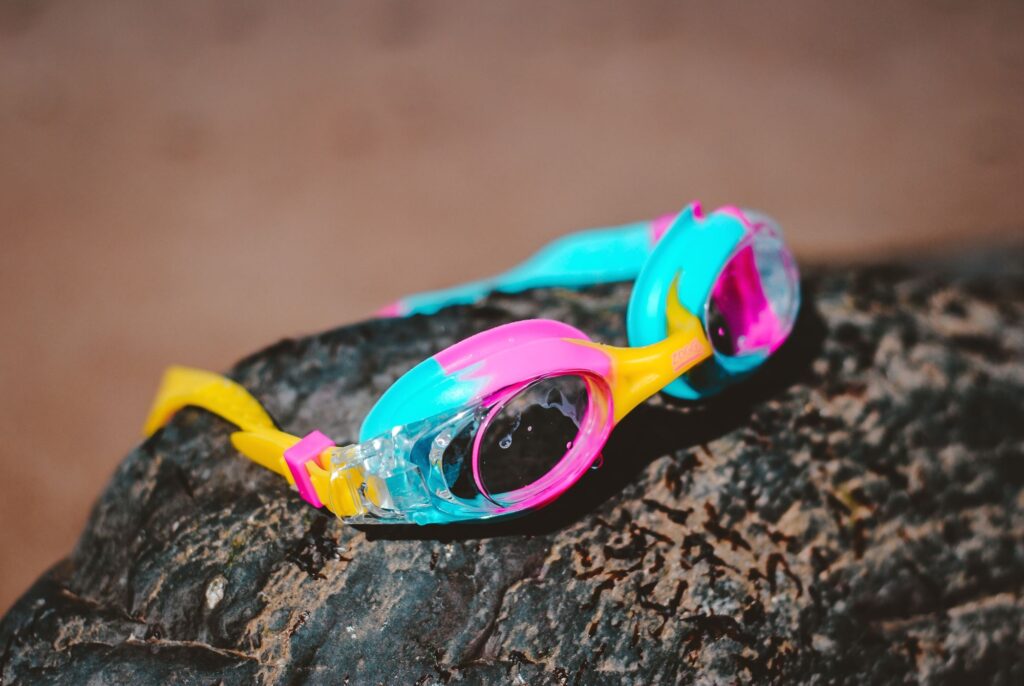Do Surfers Wear Goggles?
Picture this: you are expertly riding a wave, saltwater spraying into your face with every twist and turn, and when you wipeout or fall off your board, you can feel the water crashing into your eyes.
When swimmers go to the pool or swim in the ocean, they most probably wear goggles. But surfers, are made of different stuff, they don’t tend to wear goggles almost never.
Have you ever wondered why surfers never wear goggles to protect their eyes from the harsh sea and salty water?
While there may be rare circumstances where surfers opt or require to wear goggles while in the ocean, it’s not a common practice among the surfing community.
In this blog post, we’ll explore the reasons behind this common practice of surfers not wearing goggles and when they actually do wear them.
Let’s take a deeper look at why some surfers choose to sport eyewear like goggles while others go without.
Benefits of Wearing Goggles
There are several scenarios where surfers may choose to wear goggles while in the ocean.
One of the most common reasons is to prevent eye irritation caused by saltwater.
Saltwater can be harsh on the eyes, causing stinging, redness, and inflammation. Wearing goggles can create a barrier between the eyes and the saltwater, reducing irritation and making it more comfortable for surfers to stay in the water for longer periods.
Another reason surfers may choose to wear goggles is to protect their eyes from the sun’s glare and UV rays.
When surfing in bright conditions, the sun’s reflection off the water can cause discomfort, eye strain, and even damage to the eyes.
Have you ever noticed that surfers come out of the water with red eyes? It’s not a coincidence and it’s not because they had less sleep.
This condition, known as surfers’ eye or pterygium, is a growth that develops on the surface of the eye as a result of prolonged exposure to UV radiation and it can cause the mentioned discomfort and eye strain.
Goggles with polarized lenses can help protect surfers’ eyes from the sun’s harsh rays and reduce the risk of developing this condition.
Surfers may also opt for goggles to protect against potential hazards in the water. Sharp rocks, coral, and debris can pose a danger to surfers, especially during wipeouts or when paddling out.
Goggles with durable lenses can provide added protection, reducing the risk of injury and allowing surfers to focus on the waves.
And of course, goggles can increase visibility underwater, just like they do with swimmers, which means that if there are potential hazards in the water, you can spot them before they become a problem.
Another reason why surfers may wear goggles is if they have contact lenses. Contact lenses can be easily lost during a wipeout, and generally, it’s not advisable wearing contact lenses without goggles.
Wearing goggles can help keep contact lenses in place, preventing them from falling out and making it easier for surfers to stay in the water for longer.
When choosing goggles for surfing, make sure they are perfectly sealed around the eyes.
Why Surfers Don’t Wear Goggles?
Despite the various benefits of wearing goggles while surfing, many surfers choose not to wear them.
The short answer is that it’s just not practical. Sure, it would be nice to have a pair of goggles on so the salt water doesn’t sting your eyes when you wipeout, but goggles can interfere with your experience in the water.
First and foremost, it would be extremely difficult to keep goggles on while surfing. The constant motion of the ocean combined with the force of the waves would make it nearly impossible for a pair of goggles to stay put on your face for more than a few seconds.
Not only that, but when you’re riding a wave, you need to be able to have an unobstructed view so you can navigate through the waves without crashing into anything else.
So even if you could find a pair of goggles that could stay put on your face, they wouldn’t be very helpful in actually helping you surf better.
Therefore, surfers don’t wear goggles because of the feeling of restriction that goggles can cause, which can limit the surfer’s ability to navigate the waves and feel the flow of the ocean.
If that’s not enough, goggles can also be uncomfortable to wear for extended periods of time. The pressure they put on the eyes can cause discomfort and make it difficult for surfers to focus on the waves.
This discomfort can be a significant distraction and can interfere with a surfer’s ability to fully immerse themselves in the experience.
In addition, goggles can make the eyes feel squeezed, which can be an unpleasant sensation and prevent surfers from being able to see the coming waves clearly.
You might be missing on pretty nice sets coming while ending up messing around with your goggles.
And then they can become foggy. Foggy goggles can impair visibility and make it difficult for surfers to see clearly while in the water (on the surface anyway).
Again, this can be particularly problematic when sitting on the board waiting for waves or looking out for the next set.
While the benefit of the goggles is to provide clear visibility underwater, many surfers do not consider this feature necessary or useful because as opposed to other water sports, as a surfer you’d spent most of your time up and out of the water surface and won’t getting too much water in your face anyway.
Finally, probably the most decisive reason for not wearing goggles, is that some surfers may view goggles as uncool as they are not traditionally associated with the surfing culture.
It has become a lifestyle for many people all over the world who value the raw and natural experience of surfing, which may include exposure to the sun, wind, and saltwater, without the use of additional equipment or gear.
As such, many surfers choose not to wear any sort of eye protection because it doesn’t fit into this lifestyle they’ve created for themselves.
Surfers Simply Don’t Need Goggles
At the end of the day, surfers simply don’t need to wear goggles. While they provide a number of benefits such as clear underwater vision and protection from UV rays and salt water, these features are not essential for the most part of catching waves. Water sports were not born equal.
Final Thoughts
While wearing goggles can provide some benefits for surfers, the reasons why many surfers choose not to wear them are clear.
They can be uncomfortable, make your eyes feel squeezed, causing foggy views, impair vision when out of the water, and make you look like a kook.
But let’s be real, the primary reason surfers don’t wear goggles is that they just don’t vibe with the surfing lifestyle.
It’s not necessarily about being cool or uncool, it’s about feeling connected to the ocean and experiencing the ride.
And if that means sacrificing some small benefits, so be it. After all, surfing is all about feeling the wave, not just seeing it.
So next time you hit the waves, leave the goggles at home and embrace the surf culture, kook or not.



